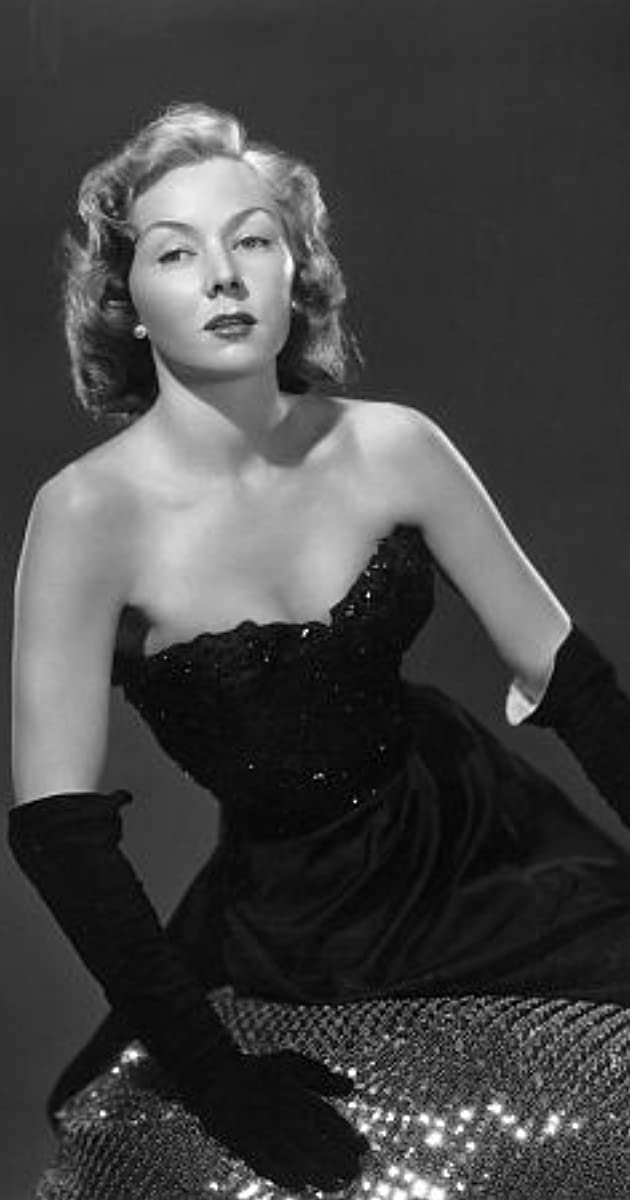
Gloria Grahame
Gloria Grahame Hallward, an acting pupil of her mother (stage actress and teacher Jean Grahame), acted professionally while still in high school. In 1944 Louis B. Mayer saw her on Broadway and gave her an MGM contract under the name Gloria Grahame. Her debut in the title role of Blonde Fever (1944) was auspicious, but her first public recognition came on loan-out in It’s a Wonderful Life (1946). Although her talent and sex appeal were of star quality, she did not fit the star pattern at MGM, who sold her contract to RKO in 1947. Here the same problem resurfaced; her best film in these years was made on loan-out, In a Lonely Place (1950). Soon after, she left RKO. The 1950s, her best period, brought her a Best Supporting Actress Oscar and typecast her as shady, inimitably sultry ladies in seven well-known film-noir classics.
Rumors of being difficult to work with on the set of Oklahoma! (1955) helped sideline her film career from 1956 onward. She also suffered from marital and child-custody troubles. Eight years after divorce from Nicholas Ray, who was 12 years her senior (and reportedly had discovered her in bed with his 13 year old son), and after a subsequent marriage to Cy Howard ended in divorce, in 1960 she married her former stepson Anthony Ray (who was almost 14 years younger than she was.) This led former husbands Nicholas Ray and Cy Howard to sue Grahame; each man seeking custody of his respective child, putting gossip columnists and scandal sheets into overdrive. Grahame herself underwent electroconvulsive therapy after the ensuing stress caused a nervous breakdown. Surprisingly, however, Grahame and Anthony “Tony” Ray proved a happy couple. The union would be Grahame’s longest marriage, lasting almost 14 years (10 years longer than her previous union with Ray’s father); the couple had two children, Anthony Jr. and James.
In 1960, Grahame resumed stage acting, combined with TV work and, from 1970, some mostly inferior films. She was described as a serious, skillful actress; spontaneous, honest, and strong-willed; imaginative and curious; incredibly sexy but insecure about her looks (prompting plastic surgery on her famous lips); loving appreciative male company; “a bit loony”. In 1975, she was treated for breast cancer. Five years later, she was diagnosed with cancer again, although it is unclear if this was a new cancer or a metastasis of her breast cancer. Grahame eventually moved to England in 1978. Her busiest period of British and American stage work ended abruptly in 1981 when she collapsed from cancer symptoms during a rehearsal. She wished to remain in Liverpool with her partner, Peter Turner (almost 30 years her junior), but after Turner notified her children of her health condition and impending death, two of her children flew to England to retrieve her, insisting she return to the United States. She died a few hours later that same day of stomach cancer and peritonitis at St. Vincent’s Hospital in Manhattan on October 5, 1981 at age 57.
Gloria Grahame Keywords
Gloria Grahame Contact Details, Gloria Grahame Facebook, Gloria Grahame Instagram, Gloria Grahame Phone Number, Gloria Grahame Cell Phone, Gloria Grahame Address, Gloria Grahame Whatsapp Number, Gloria Grahame Whatsapp Group, Gloria Grahame Email, Gloria Grahame Phone Number 2020, Gloria Grahame Twitter Account